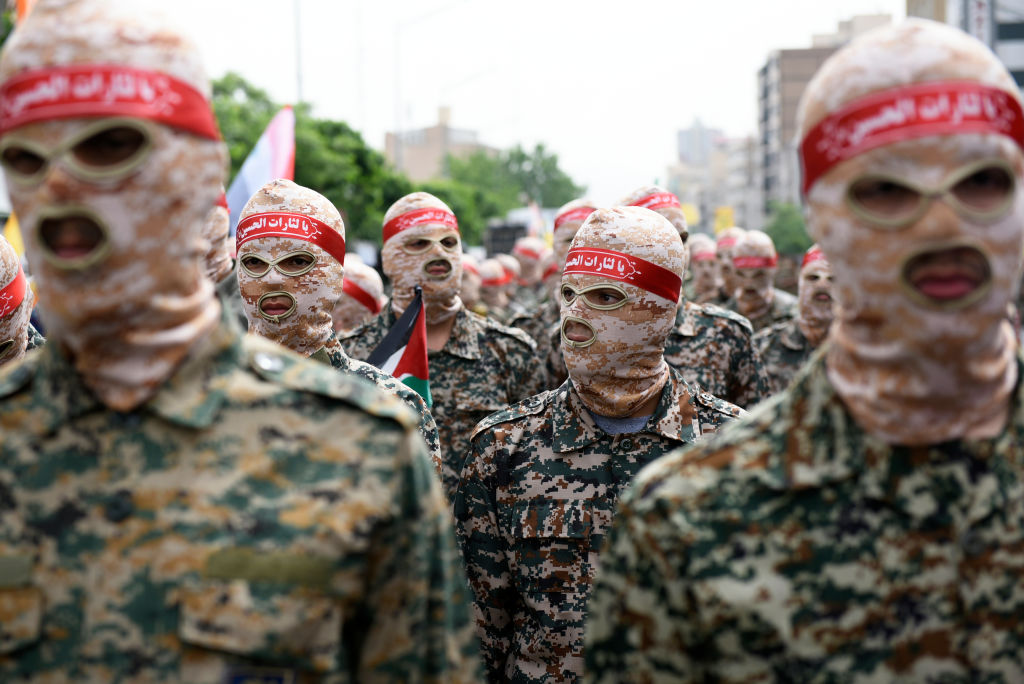Another week, another Gaza ceasefire proposal. CIA Director William Burns, speaking alongside MI6 Director Richard Moore, recently told an audience in London that a new US-backed proposal would be put forward in the coming days. Burns has had the thankless task of leading US efforts to broker a truce between Hamas and Israel.
Currently, negotiations have stalled over the Philadelphi Corridor, the strip of land along the Gaza-Egypt border, under which the IDF says it has discovered dozens of tunnels used by Hamas to smuggle weapons and ammunition. Benjamin Netanyahu has said Israel must maintain a presence there to prevent its use as a rearmament route. Hamas, implicitly agreeing with this interpretation, has said such a presence would constitute a red line.
The singular focus on rearmament routes shows that Israel is confident that it has, as it stands, neutralised the threat from Gaza. The initial war aim of destroying Hamas was always slightly vague and overly maximalist. But after 10 months of war, Israel has devastated Hamas’s military capabilities and infrastructure, killed thousands of its fighters and assassinated many of its leaders, enough for Netanyahu to be able to plausibly declare victory.
What is notable is that as Israel has pressed forward with this campaign, Iran and its allies have been impotent to stop it. When the war was beginning, news coverage was awash with speculation about Iran or Hezbollah intervening, potentially drawing in the US and igniting a full war. But Hamas soon realised that any hopes it may have had of being saved were naïve.
Instead, Iran and its proxy forces have limited themselves to diversionary tactics. The front Hezbollah has opened up against Israel in the north has caused the evacuation of approximately 80,000 residents of border towns, engineering political pressure for a ceasefire deal that would allow these people to go home. Meanwhile, the Houthis’ attacks on Red Sea shipping have forced commercial cargo to reroute and contributed to international pressure on Israel. However, neither of these diversions have had any real effect on Israel’s will or ability to prosecute the war in Gaza.
During periods of escalation, the limits of this restraint have been tested, and the prospect of wider war has seemed imminent. One such escalation was Israel’s airstrike on the Iranian consulate in Syria in April, killing Iranian commanders who were in charge of weapons flows to Hezbollah. Another was the claimed assassination of Hezbollah commander Mohammed Deif in southern Beirut in July, followed shortly by the audacious killing of Hamas’s commander-in-chief Ismail Haniyeh in Tehran. Despite the usual ominous threats of retaliation, neither Iran nor Hezbollah have extracted any serious price from Israel for either of these assassinations.
The balance of terror and tactful brinkmanship between Israel and its enemies has meant that the much-anticipated all-out war, like the elusive ceasefire deal, has been forever imminent but has never quite arrived. For its part, Hezbollah has no interest in hastening the destruction of its Islamist annex in Beirut. It must be seen to be helping its allies in Gaza, and must appease its paymasters in Tehran, but without igniting the wrath of the Israeli war machine. Benny Gantz, the leader of Israel’s opposition, has warned of bringing Lebanon “completely into the dark” in the event of a war — an outcome the Lebanese are keen to avoid.
Iran’s relative restraint shows that it seems to have heeded Joe Biden’s warning at the beginning of the war. But this restraint is also strategic: Iran’s prized nuclear programme, slowly progressing amid the regional hostilities, could be put at risk in a full-scale war, and its leaders may have concluded that sacrificing Hamas to preserve the programme is a worthwhile and necessary trade-off.
Mike Turner, Chairman of the US House Intelligence Committee, recently said that Iran could declare itself a nuclear-armed nation by the end of the year. Such a declaration would dramatically change the balance of terror, and the deterrence capabilities of Israel in regards to its enemies. The next big crisis in the region may be sparked by an attempt to prevent such a change. There are bigger things to worry about, then, than the Philadelphi Corridor.










Join the discussion
Join like minded readers that support our journalism by becoming a paid subscriber
To join the discussion in the comments, become a paid subscriber.
Join like minded readers that support our journalism, read unlimited articles and enjoy other subscriber-only benefits.
Subscribe